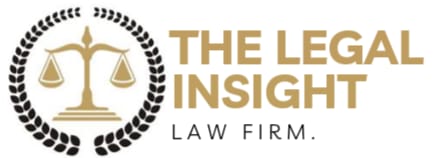
In India, a cheque bounce is a criminal offense that occurs when a cheque is dishonored due to insufficient funds. The drawer of the cheque can be held liable under Section 138 of the Negotiable Instruments Act (NI Act). The punishment for a cheque bounce can include:
- A fine of up to twice the amount of the cheque
- Imprisonment for up to two years
- Both a fine and imprisonment
The payee can initiate legal proceedings by sending a legal notice to the drawer under Section 138 of the NI Act. The drawer must respond to the notice and make payment within the specified time, usually 15 days. If the drawer fails to respond or make payment within the time limit, the payee can file a complaint against the drawer with the Magistrate's court within 30 days of the 15-day notice period. This gives the payee a total of 45 days to take action after receiving the bounce notification from their bank.
To avoid cheque bounce cases, the drawer can ensure that there are sufficient funds in their bank account when issuing the cheque. They should also be careful not to tamper with the cheque, such as overwriting it or making mismatched numbers or signatures.
Reasons for Dishonour of Cheque
- Insufficient Funds. One of the primary causes of dishonoured cheques is insufficient funds in the account. ...
- Signature Mismatch. ...
- Overwriting or Alterations. ...
- Account Frozen or Blocked. ...
- Post-Dated Cheques. ...
- Drawer's Account Closed.
Section 143A of the Negotiable Instruments Act, 1881 was inserted as part of the Negotiable Instruments (Amendment) Act, 2018. The amendment gave the court the power to order interim compensation in the event of a cheque dishonor. The Central Government set the date of September 1, 2018 for the amendment to come into effect.
Section 143-A of the Negotiable Instruments Act (N.I. Act) of 1881 gives a court the power to order the drawer of a cheque to pay interim compensation to the complainant in cases of dishonored cheques. The court's power to grant interim compensation is discretionary, not mandatory. The court must consider the following factors when deciding whether to grant interim compensation:
- Prima facie case: The complainant must make a prima facie case. The court must assess the merits of the complainant's case and the accused's defense.
- Financial situation: The court should consider the accused's financial situation.
- Plausible defense: If the accused's defense seems plausible, the court may exercise discretion and refuse to grant interim compensation.
If the court does grant interim compensation, the amount cannot exceed 20% of the cheque amount and must be paid within 60 days of the order. The court may grant an extension of up to 30 days if the drawer provides sufficient cause.
Procedure to file Cheque Bounce Case Against Drawer:-
Step 1
Notice for Demand
After Dishonor/bounce of Cheque party Should issue a legal demand notice of a cheque amount through counsel/advocate to drawer, (the person who wrote/issue the cheque) within 30 days of receiving the information from the bank about the dishonor. The notice should demand payment of the cheque amount within 15 days.
Step 2
Filing a Complaint before Learned Magistrate
If the drawer doesn't pay the cheque amount within the 15 days’ notice period, you can file a criminal complaint under Section 138 of the Negotiable Instruments Act before the magistrate/appropriate court. Typically, this would be the Magistrate Court within whose jurisdiction the bank branch where the payee holds an account is situated.
>>DRAFTING OF COMPLAINT <<
Prepare the complaint with the necessary details, including the facts of the case, the dishonored cheque details, the legal notice sent, and any other relevant information. the complaint would be prepared by the advocate with all legal aspects and his legal expertise
Court Proceedings
Attend the court hearings and present your case. It’s essential to have proper legal representation through an advocate with proper legal representation. The court will summon the drawer/accused and issued summons to accused if accused evades the court summon court shall issue Non Billable Warrant NBW of accused/drawer
Stage of Evidence
After appearance of accused would apply for bail in the case and file surety for his appearance which Ensure his further appearance thereafter framing of notice of accused and fixed this matter for evidence, you have all the necessary evidence, such as the original check, bank records, the notice sent, and any correspondence related to the case.
Cross-examination of witness
Be prepared for cross-examination by the defense lawyer.
Defence evidence
Accused can lead his evidence for his defence if any after the completion of defence evidence case is fixed for final argument.
Final argument
judgement/Verdict
****FAQ related to cheque bounce case****
- What is the punishment for cheque bounce in Delhi?
That the Negotiable instrument act is applicable throughout Indian hence punishment and procedure of trial and punishment same in whole India and Delhi also. Accused drawer shall be punished with imprisonment for a term which may be extended to two years or with fine which may extend to twice the amount of the cheque or with both
- Can I get bail in a cheque bounce case?
Grounds for Bail: If the only offense is a cheque bounce case, then you can get bail since it's a bailable offense. The court may require you to provide a surety and bail bond as a guarantee that you will attend court hearings and a surety person for his appearance which Ensure his future appearance before the court You or your surety may be asked to deposit a specified amount of money as security
- What is the timeline for cheque bounce case?
Under Section 138 of the Act, the offence of cheque bounce is a criminal offence for which the payee can initiate a criminal suit. The payee must file the complaint against the cheque bounce before the Magistrate within 30 days of the expiry of 15 days of issuing the cheque bounce notice
Contact us today to schedule a consultation and let us help you navigate the complexities of you & your legal issue. We are here to support you through our expertise & strategies every step of the process.
